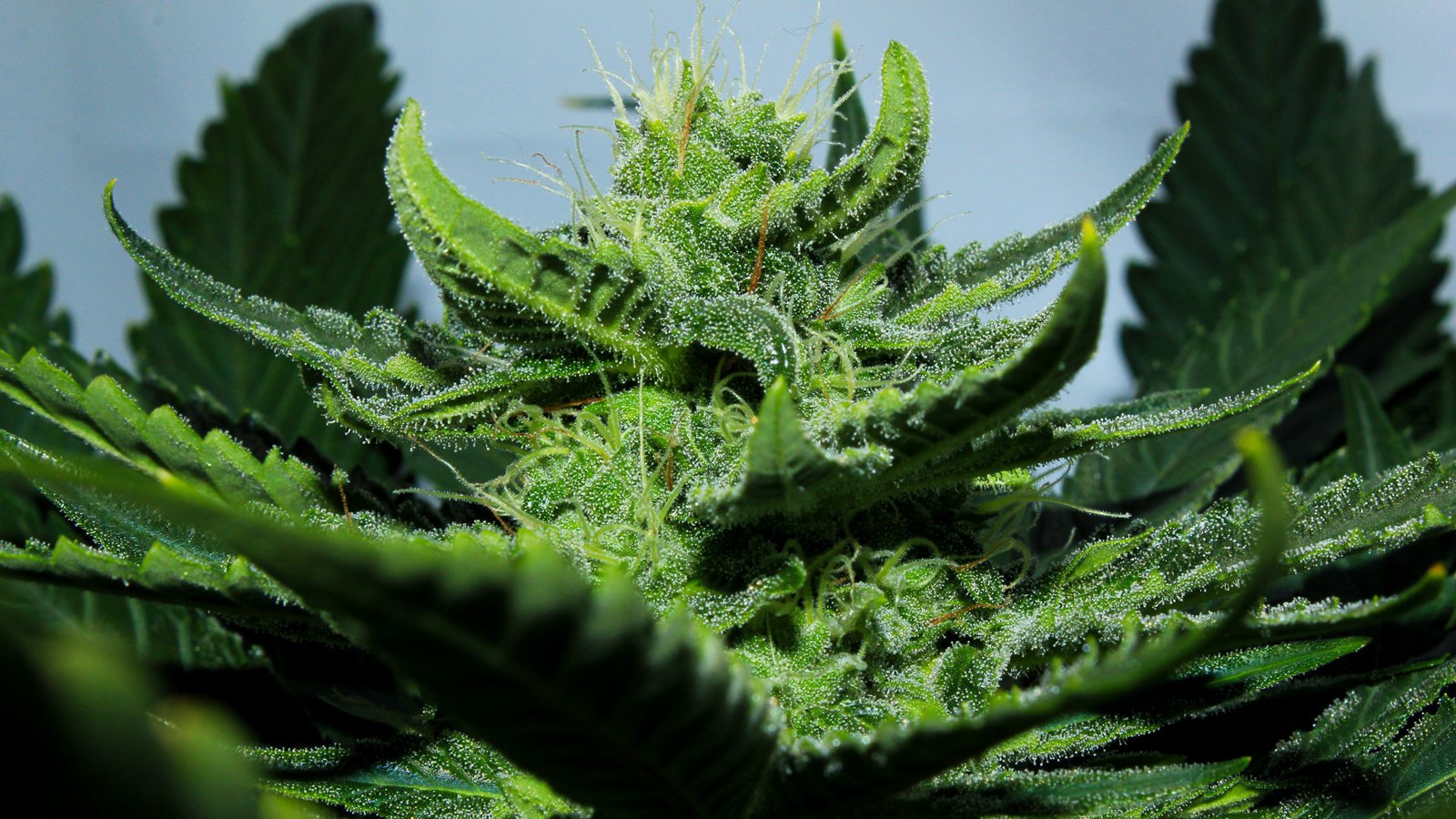News
The Science Behind How Cannabis Can Be Used Medically
Cannabis, a plant long surrounded by controversy and stigma, has recently garnered significant attention for its potential medical benefits. While its recreational use is often debated, the medicinal properties of cannabis are now being acknowledged and researched more extensively. This shift in perspective has been driven by increasing anecdotal evidence and a growing body of scientific research that explores how cannabis can be used medically. This blog delves into the science behind this intriguing plant, shedding light on its therapeutic potential.
Components and Mechanisms

Marijuana comprises more than one hundred different chemicals termed cannabinoids where one of them by the name tetrahydrocannabinol THC and the other being cannabidiol CBD. THC is the component of cannabis that causes the euphoria, or the ‘high,’ and CBD, although it has some psychoactive effects, does not cause euphoria and is credited with several potential medical benefits. These cannabinoids act upon the endogenous cannabis system ECS, which is a cellular signaling network that has several functions in control of body’s functions including the moods, pains, appetites and immune systems.
ECS include endocannabinoids which are cannabinoids produced within the body and receptors, cb1 and cb2, and enzymes that promote synthesis and degradation of the endocannabinoids. Cannabinoids from cannabis in the body interact with these receptors in different ways to alter their function and thus impact several body processes. This interaction is instrumental in understanding how cannabis can be medical because it is channeled through the latter and assists in regulating the body’s response to pain, inflammation, and other diseases.
Pain Management and Inflammation
One of the most well-documented medical uses of cannabis is in pain management. Chronic pain, which affects millions of people worldwide, is often difficult to treat with conventional medications. Cannabis, particularly strains high in CBD, has shown promise in alleviating chronic pain by reducing inflammation and interacting with neurotransmitters involved in pain signaling.
Studies have demonstrated that cannabis can be effective in managing pain associated with conditions such as arthritis, multiple sclerosis, and neuropathic pain. For instance, a 2015 study published in the *Journal of Pain Research* found that patients with neuropathic pain experienced significant pain relief with the use of cannabis. Additionally, the anti-inflammatory properties of cannabinoids can help in reducing the inflammation that often accompanies chronic pain, making cannabis a valuable tool in pain management.
Neurological and Mental Health Benefits

The plant has similarly a relief of neurological and mental health disorders. This is especially true for epilepsy patients as incorporating CBD has been a revolution to their lives especially for those who do not respond to most of the typical treatments. CBD-based referred to as epidiolex has received the green light by FDA for use in treating several forms of epilepsy like Dravet syndrome and Lennox-Gastaut syndrome. Several scientific studies have established that use of CBD as an anti seizure medication is safe and effective in easing the number and intensity of seizures in these patients.
Aside from epilepsy, medical marijuana is another medication that is currently in use and being tested to help cure anxiety, depression, and PTSD. Out of all of these, CBD has been proved to have anxiolytic effects that is the ability to reduce anxiety related disorders without the usual side effects of standard anti-anxiety drugs. This was highlighted in a *Journal of Clinical Psychology* publication that notes CBD has the potential to treat anxiety in SAD and PTSD patients, replacing conventional solutions which may be riskier to health.
Cancer Symptom Management
Cannabis is increasingly being used to manage symptoms related to cancer and its treatment. Chemotherapy, a common cancer treatment, often comes with debilitating side effects such as nausea, vomiting, and loss of appetite. Cannabis, especially THC, has been found to be effective in alleviating these side effects, improving the quality of life for cancer patients.
Research has shown that cannabinoids can help reduce chemotherapy-induced nausea and vomiting (CINV). A study published in the *British Journal of Clinical Pharmacology* found that cannabis-based medications were more effective than traditional antiemetics in controlling CINV. Additionally, cannabis can help stimulate appetite, which is crucial for cancer patients experiencing weight loss and malnutrition due to their treatment.
Anti-Inflammatory and Autoimmune Conditions
Cannabis has demonstrated the capability to address several autoimmune and inflammation ailments like rheumatoid arthritis, active Crohn’s disease, Lupus, and others. Some of the conditions include chronic inflammation and diseases, there being evidence that cannabinoids can assist in lowering inflammation and managing immune reactions in patients suffering from such chronic illnesses.
Specifically, in a study conducted by researchers from *Pharmacology & Therapeutics*, it was learnt that cannabinoids work well in regulating the immune system and managing inflammation in autoimmune disorders patients. Hence, cannabis could be a helpful addition to the list of treatment options for individuals with chronic inflammatory and autoimmune diseases, as it provides an herbal non-pharmacological approach that has potential for helping to reduce and manage the inflammation without the negative impacts of immunosuppressive agents.
The Challenges and Future of Medical Cannabis

Nevertheless, given the trends highlighted above, numerous potential issues are associated with cannabis as a medical treatment. Legal bans also, and the perception of cannabis use as socially undesirable, also attempts to curtail research and possession. Today, cannabis remains under Schedule I, which implies strict limitations in testing its effects across different countries and regions with thousands of patients.
Even when it comes to the effects of the product, there is considerable variation due to different strains of the cannabis plant as well as other products that are derived from the plant. Some strains have higher concentrations of THC, CBD and these and other cannabinoids which make different a dominant therapeutic impression. This reality is why it is important for cannabis products and those doses to be properly standardized so that people receive proper treatments within their medications.
As for the future of medical cannabis, it looks quite bright. It is therefore expected that as more nations adopt the use of cannabis and as more scientific studies reveal the benefits of cannabis leaning towards positive uses in practice, cannabis use in medicine will further spread. Development more particularly in affection and the practice of farming methods and the advancement of cannabinoid-derived medicine will boost our ability to tap the numerous benefits in this peculiarity tree.
Embracing the Therapeutic Potential of Cannabis
As for the contemporary notion of medical marijuana, the concept is actually well-supported by the scientific method. But today we see that marijuana has a more diverse approach to treatment and is used to treat such ailments as chronic pain, neurological disorders, cancer treatment side effects, multiple sclerosis and other autoimmune diseases. There are still issues, but ground-breaking research and the evolution of laws and regulations open the future for more extensive legalization and application of medical marijuana.
I wanted to say that in pursuing the medical, restorative properties of cannabis, we must be open minded and scientific at the same time. That way, new, previously unavailable becomes available for the human race, making the lives of millions of people around the globe more comfortable. It is clear that we are only just starting on the medical potential of cannabis, and it is an area with much potential for the future of medicine.


